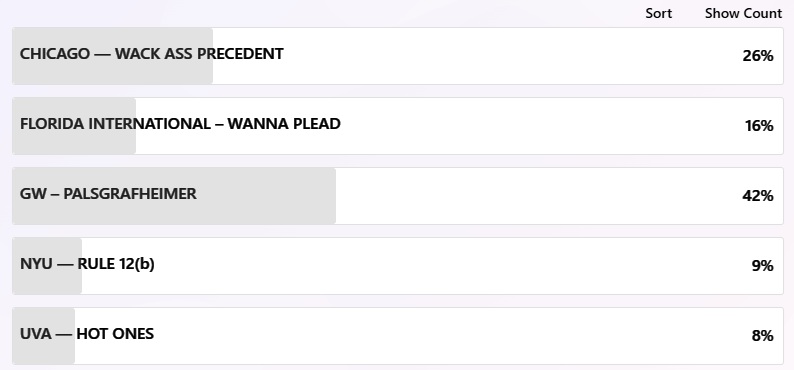
Last
year,
I
wrote
an
article
about
how
it
often
makes
sense
to
hire
local
counsel
rather
than
to
travel
for
clients
in
some
circumstances. Travel
time
can
add
costs
for
clients,
and
if
a
lawyer
is
not
admitted
in
a
given
jurisdiction,
it
might
be
better
to
have
local
counsel
handle
a
case
rather
than
pro
hac
into
a
jurisdiction
and
handle
a
matter
in
a
faraway
forum. However,
in
some
circumstances,
it
might
make
sense
for
a
lawyer
to
travel
several
hours
to
complete
work
for
a
client
rather
than
task
local
counsel
with
a
given
matter.
Administrative
Issues
Whenever
a
client
hires
a
new
lawyer,
administrative
issues
need
to
be
hashed
out
before
a
lawyer
can
take
a
case. One
sticking
point
is
that
a
new
lawyer
usually
will
require
an
advance
retainer
payment
even
if
the
new
lawyer
simply
needs
to
make
a
quick
court
appearance
for
a
client
or
complete
some
other
simple
task. Of
course,
it
makes
sense
that
a
lawyer
would
not
trust
that
a
new
client
would
pay
the
lawyer’s
bills
and
insist
that
an
advance
retainer
be
paid.
However,
clients
often
do
not
like
to
pay
advance
retainers.
Even
though
retainer
payments
are
often
refundable
if
they
are
not
used
on
legal
fees,
clients
know
that
lawyers
find
a
way
of
justifying
why
they
spent
enough
time
to
keep
the
retainer
payments. Depending
on
how
much
a
local
counsel
wishes
to
charge
for
an
advance
retainer
payment,
a
client
might
be
willing
to
pay
their
usual
lawyer
for
travel
costs
associated
with
completing
a
legal
task
a
few
hours
away.
Urgency
In
certain
circumstances,
clients
do
not
have
much
notice
before
they
need
to
appear
in
court
or
attend
to
some
legal
matter. Some
exigent
legal
proceedings,
including
stays
and
some
eviction
matters,
require
action
immediately,
and
clients
may
only
give
lawyers
a
day
or
two
of
notice
that
a
legal
matter
needed
to
be
handled. In
such
circumstances,
a
client’s
typical
lawyer
may
need
to
handle
a
matter
since
there
is
simply
not
enough
time
to
onboard
local
counsel.
Before
a
lawyer
can
handle
a
case,
they
typically
need
to
do
conflicts
checks
to
make
sure
that
a
matter
does
not
conflict
with
other
work
handled
by
a
firm. Although
this
should
be
an
easy
process,
some
larger
firms
have
numerous
clients
they
need
to
cross-check,
and
this
can
take
time. Also,
it
can
take
time
for
a
retainer
payment
to
clear,
and
some
lawyers
may
not
work
on
a
matter
until
they
know
that
a
payment
has
cleared. In
such
circumstances,
a
client’s
usual
lawyer
may
need
to
jump
on
a
matter
even
though
excessive
travel
time
is
involved.
Institutional
Knowledge
Some
clients
use
one
law
firm
for
all
of
their
work
spread
across
multiple
jurisdictions.
Indeed,
my
own
law
firm
handled
work
all
across
the
states
in
which
we
practice
for
our
clients
so
that
the
client
only
has
one
lawyer
they
need
to
deal
with
for
all
of
their
legal
work. It
can
sometimes
be
difficult
to
bring
new
lawyers
up
to
speed
on
a
matter
so
that
they
can
be
as
effective
as
possible
in
court.
In
such
circumstances,
it
might
make
sense
to
have
a
client’s
typical
lawyer
travel
to
a
court
appearance
to
advocate
on
a
client’s
behalf. The
additional
expense
associated
with
traveling
might
be
worth
it
since
bringing
a
new
lawyer
up
to
speed
would
also
come
at
a
cost. In
addition,
the
client’s
typical
lawyer
might
be
able
to
advocate
better
for
a
client
because
of
their
wealth
of
knowledge
about
a
client’s
affairs.
Personally,
I
always
handle
work
for
clients
if
the
travel
time
is
around
two
hours
or
less,
and
I’ll
handle
anything
within
driving
distance
in
some
circumstances. Certain
situations
might
require
the
involvement
of
a
client’s
typical
lawyer
rather
than
hiring
local
counsel
to
cut
down
on
transportation
costs.
Jordan
Rothman
is
a
partner
of
The
Rothman
Law
Firm,
a
full-service
New
York
and
New
Jersey
law
firm.
He
is
also
the
founder
of
Student
Debt
Diaries,
a
website
discussing
how
he
paid
off
his
student
loans.
You
can
reach
Jordan
through
email
at
jordan@rothman.law.












 Kathryn
Kathryn




